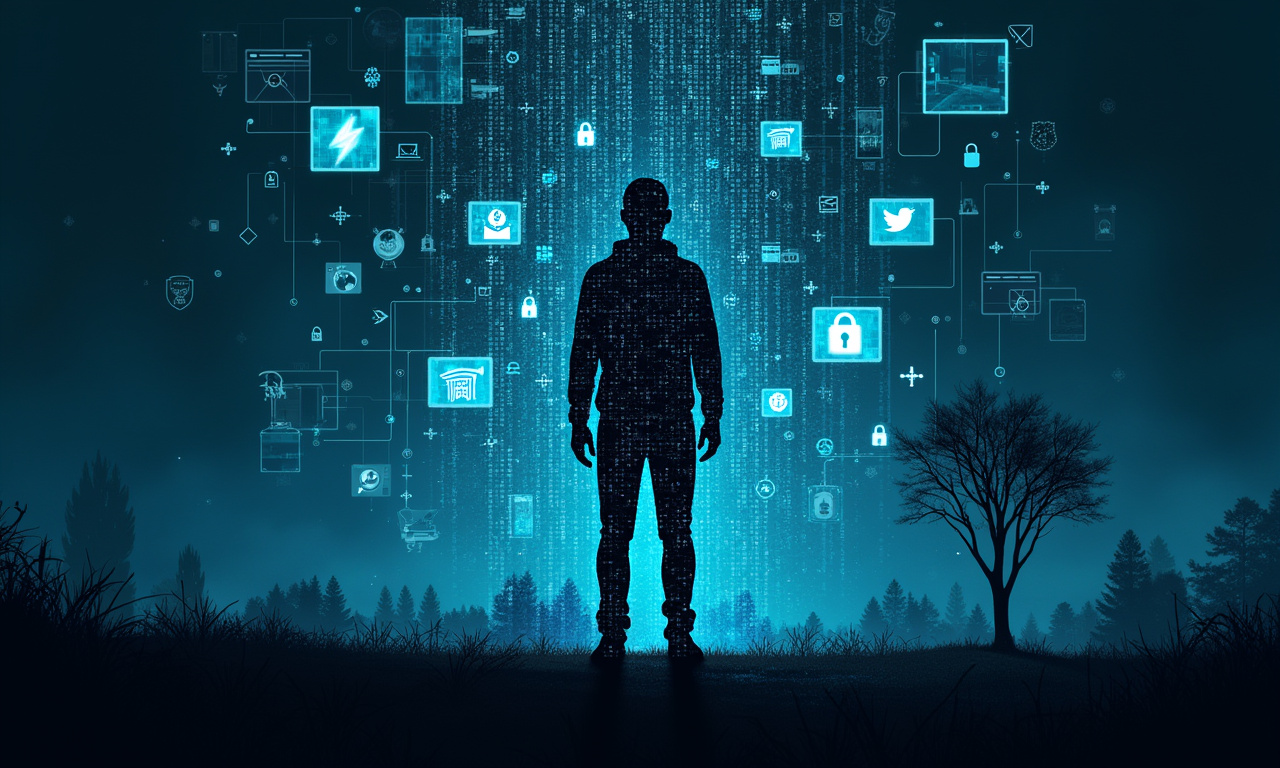Your digital identity. It's you in the digital world. What if that “you” is being exploited against you, and unknowingly at that? We tend to imagine cybersecurity as purely a tech issue, one addressed with firewalls and black-box algorithms. I'm here to tell you the real vulnerability isn't in the code, it's in us. It's the human element. And it’s being weaponized like you’d never imagine.
1. Deepfakes Destroying Real Reputations Fast
Do you believe that a picture is worth a thousand words? What about a video? Deepfakes, AI-generated videos, that convincingly mimic real individuals saying or doing things they never said or did, are quickly developing. What once took the magic of Hollywood special effects can be now done on your smart phone – and potentially weaponized against you. Now picture that same deepfake video of you endorsing a product you loathe, or even more egregious, saying something truly heinous. The harm to your good name, personally and professionally, would be incalculable. That's modern-day character assassination. We used to be concerned about authentication with stolen passwords, now they’re stealing our biometrics, our faces and our voices.
2. Grandparents Are Goldmines For Scammers
It's heartbreaking, but true. The senior population—generally less tech-savvy and more trusting—are particularly ripe for social engineering attacks. Remember the Irish folklore of cunning tricksters? Yet the digital landscape today is littered with them. Scammers have always preyed on trusting victims with methods both high-tech and low. As an illustration, they pose phishing campaigns as dire needs from relatives, conduct fraudulent tech support scams requiring remote control of PCs, and execute romance scams taking advantage of solitude. To be frank, are we, the millennial and Gen Z advocacy community, doing enough to save them? Are we really communicating with them about these threats, in terms they comprehend?
3. Free Wi-Fi Costs More Than You Think
That free Wi-Fi at the coffee shop? Convenient, right? It's a honeypot for hackers. Open networks give them the ability to spy on your activity, harvest your credentials, and even push malware to your device. Consider it similar to leaving your front door completely open while on holiday vacation. Sure, it's convenient for the delivery guy, but it's an invitation for anyone with bad intentions. Is it worth putting your whole digital life in jeopardy to save a few bucks on data? I think not.
4. Weak Passwords Equals Open Invitation
Still using "password123" or your pet's name? In reality, you’re just about giving up the keys to your digital empire. It's lazy, and frankly, irresponsible. Weak passwords are the equivalent of leaving your car running with the keys in it. Taken together, they set a dangerous trap in the digital space. Cybersecurity Multi-factor authentication (MFA) is your first line of defense. Use it. Everywhere. No excuses.
5. Your Smart Devices Listen And Learn
Alexa, Siri, Google Assistant – they’re on, ready to respond, and always listening. What are they really hearing? Who else is listening in? Smart devices accumulate insurmountable troves of data on your habits, preferences, and even private conversations. This data can be used to target you with personalized ads or worse, to profile you for social engineering attacks. It's a convenience trade-off, but are you truly aware of what you're giving up in exchange? This is a privacy minefield that continues to grow every day, and we need to start demanding more transparency and control.
6. Identity Systems Compromised - Ransomware Time Bomb
In fact 90% of ransomware attacks points to an identity system being breached. Correct again! Your Active Directory or Entra ID really is the core of your digital landscape. It is the front door for these truly heartbreaking attacks. It’s a castle with a really obvious backdoor. Meanwhile, protecting these core systems has been proven as the utmost priority, but most organizations continue to overlook fundamental security practices. The consequences can be catastrophic.
7. Cloud Security Is Shared Responsibility, Remember?
So shifting to the cloud isn’t the silver bullet for your security challenges. It's a shared responsibility model. You need to protect your sensitive data and enterprise applications in the cloud. In return, the cloud provider takes care of the security of the underlying infrastructure. Many organizations err on the side of assuming that the cloud provider is securing it all, which often puts them at an attack surface. Don't assume; verify. Know what you’re responsible for and be proactive in protecting your cloud environment. If you are a public sector agency based in Singapore, you remain the intended audience.
The cybersecurity industry likes to get lost in the weeds on technical solutions, but we must not forget about the human element. What we require instead are stronger cybersecurity education, more user-friendly security tools, and a deeper understanding of the new threats we all now contend with. We must turn to our family and friends. Let’s ensure that everyone, particularly the most vulnerable, has the resources to protect themselves and mitigate their risk. After all, our digital identity is an extension of who we are, and it deserves to be protected. Don't let it be weaponized against you.




